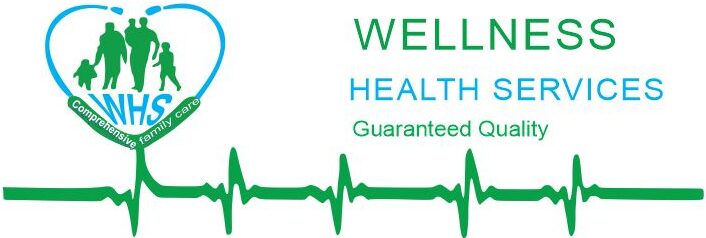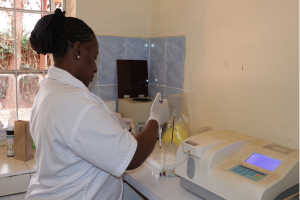🧲 Could Your Family History Be Hiding a Cancer Time Bomb?
You may feel perfectly healthy. You’re eating right. You’re active. But deep within your DNA could be a silent mutation—a dangerous glitch passed down through generations—that could spark cancer when you least expect it.
As Kenya continues to battle the rising wave of cancer cases, genetic awareness, prevention, and early screening are not futuristic—they are urgently necessary. And with the growing reach of SHA, enhanced healthcare cover, we now have an opportunity to make these life-saving tools accessible to more Kenyans than ever before.
👪 How Does Genetics Influence Cancer?
Cancer begins when abnormal cells grow uncontrollably. While many of these changes happen due to environmental exposures or aging, about 5–10% of cancers are inherited—passed down from parent to child through mutated genes.
These genetic mutations are like silent switches: you may feel fine now, but the risk is quietly growing—especially if you don’t know they exist.
🧬 Inherited Mutations You Should Know
| Gene | Linked Cancers | Your Risk |
|---|---|---|
| BRCA1/BRCA2 | Breast, ovarian, prostate | Up to 10× higher |
| TP53 | Brain, breast, adrenal (Li-Fraumeni syndrome) | 90% lifetime risk |
| MLH1, MSH2, PMS2 | Colorectal, uterine (Lynch syndrome) | 50–80% risk |
| RET | Thyroid, adrenal | High early-onset risk |
These genes normally help prevent cancer. But if they are mutated, your body’s defense system is weakened—and cancer can appear earlier, spread faster, and be harder to treat.
🇰🇪 The Kenyan Situation: Why This Matters Now
In Kenya, cancer is the third leading cause of death, and most patients arrive at hospitals when it’s already too late. Many Kenyans still don’t realize that if your mother, sister, or uncle had cancer—especially at a young age—you may be at risk too.
Genetic risk is not about fear. It’s about early action.
🔍 If cancer runs in your family, you need to:
✅ Get early screening
✅ Change lifestyle habits that add to risk
✅ Educate your family
✅ Access genetic counseling where possible
With SHA and the push for digitized health records and advanced screening tools, we’re moving closer to a health system that can catch these risks early—if we act now.
🧪 What Is Genetic Testing—and Why It Saves Lives
Genetic testing is a lab test that checks your DNA for cancer-causing mutations. If you carry a high-risk gene, your doctor may recommend:
✅ Earlier and more frequent screenings (like colonoscopies, breast exams)
✅ Preventive treatments like medication or surgery
✅ Lifestyle changes to reduce risk
✅ Family testing to protect loved ones
Currently, testing is available at major Kenyan centers such as Aga Khan University Hospital, Nairobi Hospital, and KUTRRH—and should be expanded nationwide through county hospitals and SHA-supported clinics.
🛑 5 Signs You Should Consider Genetic Screening in Kenya
-
A relative had breast, ovarian, colon, or prostate cancer
-
Any family member was diagnosed with cancer before 50
-
Multiple relatives on one side had the same cancer
-
You belong to a community with clustered cancer cases
-
You or your family member already tested positive for a mutation
💡 Prevention Is Power: From Genetics to Action
Knowing your genetic risk isn’t about panic—it’s about power. Kenya must move beyond late diagnosis to precision prevention. That means:
🧬 Genetic literacy in our communities
🏥 County hospitals offering risk-based screening
📲 Digital health tools to track family history
🧾 SHA plans including genetic counseling and diagnostics
As we embrace technology in healthcare, from mobile cancer screening units to AI-assisted diagnostics, genetics must be part of our future strategy.
🚨 Final Word: Don’t Wait for Symptoms—Act on Your Family History
Your DNA may carry a secret, but you have the power to unlock it.
✅ Ask about cancer in your family
✅ Push for screenings even if you feel “normal”
✅ Use your SHA plan to access diagnostic services
✅ Educate your children—this is how generational health is built
📚 References
-
National Cancer Institute. Cancer Genetics Overview (PDQ®)
https://www.cancer.gov -
PMC. Importance of Genetic Risk Assessment in Cancer
https://www.ncbi.nlm.nih.gov/pmc/articles/PMC11164255 -
OncLive. Genetics and Cancer Care
https://www.onclive.com/view/the-role-of-genetics-in-cancer-care-continues-to-expand -
Verywell Health. Hereditary vs. Acquired Gene Mutations
https://www.verywellhealth.com/hereditary-vs-acquired-gene-mutations-in-cancer-4691872 -
YouTube: Understanding Hereditary Cancer Risk – UCLA Health
https://www.youtube.com/watch?v=NRm93UX6LGI
#CancerAwarenessKE #GeneticTestingKenya #TOSHA #CancerPrevention #HereditaryCancer #BRCA #LynchSyndrome #HealthyKenya #DNAandCancer #SmartScreening


